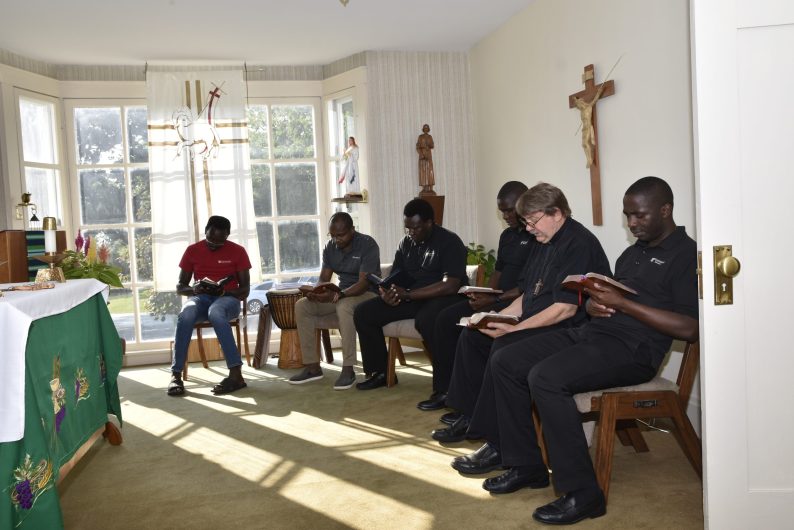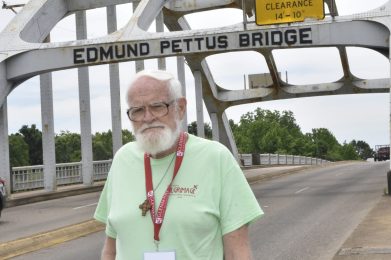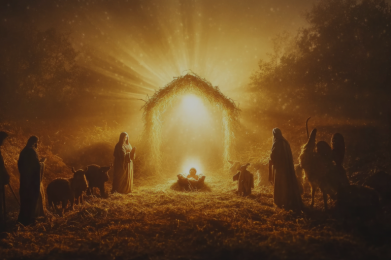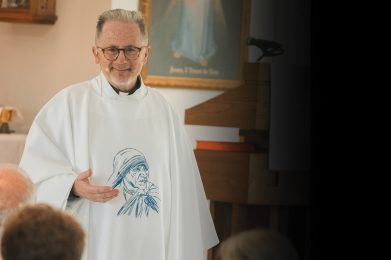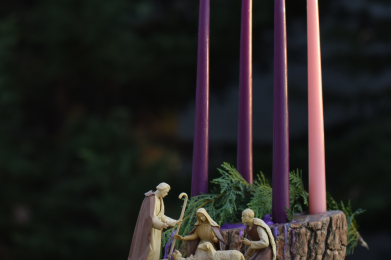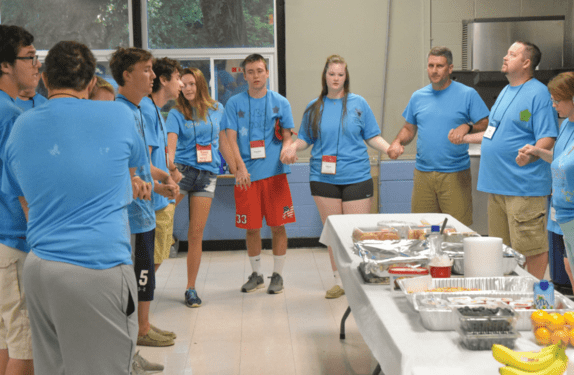“I am aware that the Glenmary way of life commits me to a special practice of poverty, chastity, obedience, and prayer.” — Glenmary’s Final Oath
When a Glenmarian places his hand on the Bible and takes his oath, it includes a special call to prayer. That’s not typical; most religious profess vows or oaths to three evangelical counsels: Poverty, Chastity, and Obedience. Yet, are not all Christians called to prayer? Are not all religious men and women called to prayer? Why would this oath be added?
Imagine Glenmary, beginning in 1939, trying to establish the Catholic Church in rural Appalachia before President Johnson’s War on Poverty, when the mountains were still very isolated from the rest of the United States. The priests and Brothers were from very Catholic cultures in other parts of the country. Mass back then was in Latin, and most people of these parts had never met a Catholic. They weren’t certain that Catholics are Christian. Suspicion and prejudices were plentiful. A Catholic missioner in that environment had better be a person of prayer!
Anti-Catholic bigotry
The prejudice against Catholics is no joke. Here are some true stories and experiences I encountered in my missionary life (which began in 1983). During my first pastorate in Mississippi, the Baptist minister shared with me that when he was a child, his class clapped at the announcement of the assassination of President John F. Kennedy because he was a Catholic.
A Franciscan Sister who was a home health nurse shared this story with the newly appointed bishop of Lexington, Kentucky, in 2002. One of her elderly clients was crying one day on the porch. She asked why he was upset. His response was, “Sister, you are the kindest person I know. You are so good to me. Yet, you are going to hell and I will miss you when I am in heaven.”
In 2013 I was visiting a convert to Catholicism and her homebound husband. She was born and raised in the mountain hollows of Tennessee, with a Church of God grandfather as pastor. When she told them she was going to New Jersey to marry a Catholic man, she was instructed to bring a knife. Why? Because her grandfather believed that the priest claimed a right to sleep with the bride. The knife was to protect herself. After the wedding she reported to her grandfather that she did not need the knife “because he did not even try.”
Pray through it
Proclaiming the faith where you may not be wanted requires a Glenmarian to have a special practice of prayer. Yet, the reason for this oath goes beyond this practical need.
The Glenmary Constitution and the Glenmary Directory outline with explicit detail what our call to prayer entails. There are 18 paragraphs on prayer between the two documents that lay out all aspects of Glenmary’s way of life. We are serious about prayer, because, as our Constitution states so well, “Without prayer faith soon dries up and dies. Without prayer charity grows cold and becomes routine and hope becomes a utopian dream” (Constitution, #40).
Our prayer is to be communal, personal, and ecumenical. So even though prayer strengthens us, who typically live among few Catholics, and even still encounter occasional anti-Catholic bias, we still embrace prayer with non-Catholic Christians. We often seek out and create new forms of ecumenical prayer opportunities. To do so, one must be strong in faith.
Glenmarians are contemplatives in action: praying on the road or in chapels before the Blessed Sacrament, praying with others in many settings—churches, front yards, nursing homes, tomato fields—and privately in the homes of the people we serve. As our Constitution instructs, Glenmarians “should renew and strengthen our individual personal prayer life so that with fervent charity, renewed hope, and strong faith, we may reach out from our community to all those in need in the rural areas and small towns of the United States” (#44).
Our communal prayer is the Liturgy of the Hours, Lectio Divina, and of course, in the words of both our Constitution and Directory, “We hold that the Eucharist is the central prayer of our lives” (#41 and #42).
From the very beginning of Glenmary’s mission, the goal of establishing new Catholic communities in counties where they do not exist has been at the heart of our ministry. That requires priests and Brothers whose own lives are rooted in the Eucharist. They are sharing that sacramental expression of the Real Presence with others.
But that sacramental expression is not confined by church walls. Our service to the reign of God means dealing with the sins of our times, with poverty, prejudice, abuse of power, and more. That social sin affects the daily lives of everyone in our county, Catholic and non-Catholic alike.
To stand as a witness for justice, for wholeness of the Gospel into communities where we are a minority is no small task. We have the strength to walk with others only because we are men of the Eucharist. Everything we do flows from our relationship with Jesus. That relationship is nurtured by prayer and the Eucharist.
Our founder wrote, “If our interior life is not kept on a high plane, our work can have only an apparent success and not very long. The fundamental requirement for true success is that we all strive daily to be saints” (Mid-Winter letters).
Therefore the wisdom of our founder and our current Constitution and Directory call us to a special practice of prayer. We pray that we may be witnesses to all of God’s love, mercy, and justice. Please pray for us as we pray for you!

